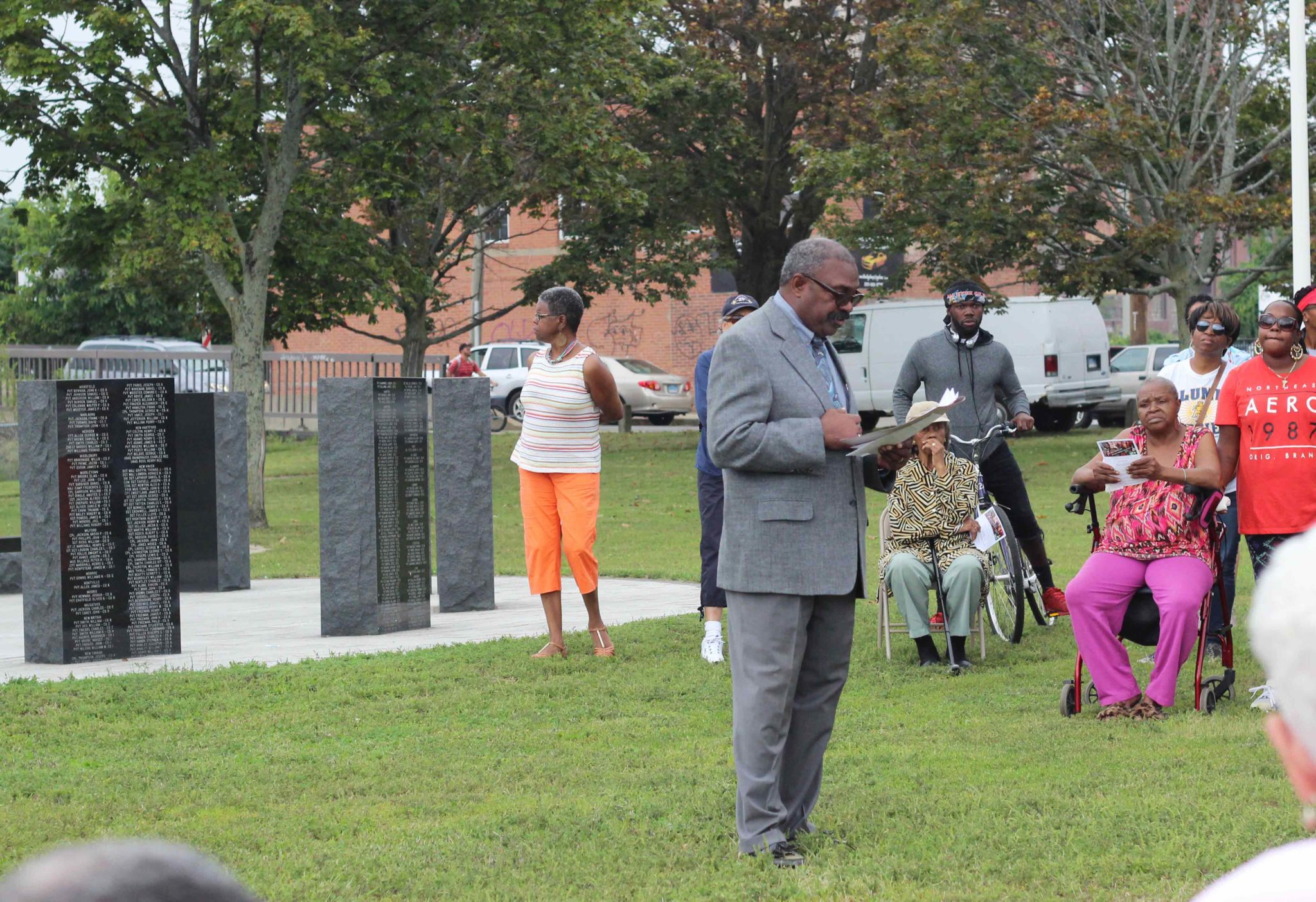
What would Frederick Douglass say? This was the theme of an event held in New Haven’s Criscuolo Park Saturday morning both in commemoration of Douglass and in response to the recent far-right rally in Charlottesville, Virginia.
Co-organized by the Amistad Committee, Inc., a nonprofit that raises awareness of the 1839 Amistad revolt — an event largely credited with catalyzing the abolitionist movement — and the African-American community at large, and the Descendants of the Connecticut 29th Regiment Colored Voluntary Infantry, the event was located at an opportune park — just next to the CT 29th monument, which commemorates the first all-black regiment in the Civil War that Douglass helped to recruit around New Haven. That act was one of the main reasons the organizers decided to celebrate his life and legacy, according to Kai Perry, one of the directors of the Amistad Committee. Another reason, she said, was that the day was close to Douglass’s 200th birthday.
But this event was not solely about past events. Amanda Simpson, a ninth-grade student from New Haven, gave a short overview of Douglass’s life story, in which she reminded everyone of the urgent need not just commemorate, but as Douglass said shortly before his death, to “agitate, agitate, agitate.”
Other speakers spoke to the relevance of Douglass’s ideas in today’s society, a need heightened by the display of white supremacy and anti-Semitism in Charlottesville and the Trump administration’s response.
Reverend Doctor Frederick Streets DIV ’75, an associate professor at Yale Divinity School, delivered the keynote address. He traced the history of racial prejudice in the United States, especially the infamous Dred Scott decision in 1857, and praised Douglass’s resilient spirit. Transitioning from Douglass’s denunciation of hate as antithetical to the “teaching of Jesus,” he said he made “a commitment to never talk about the white race or the black race, but only people of different cultural backgrounds, because we are all part of one race, and that is the human race.”
Sergio Olmeida Ramirez, organizer of Junta for Progressive Action, linked the struggle of African-Americans with the struggles of other disadvantaged groups, particularly DACA recipients.
“Our struggle is one,” he concluded.
The event culminated in a performance by Nathan Richardson, in which he, from the perspective of Frederick Douglass, commented on the current social and political environment and performed an excerpt of the famous “What to the Slave Is the Fourth of July?” Pointing toward the Pearl Harbor Memorial Bridge on I-95 in the vista, he remarked that “you have become better in building physical bridges,” but that he hoped bridges of commensurate grandeur can be built in the hearts of all humanity. He also called all the children to the stage and stressed to them the important of civic knowledge, with copies of the Constitution as gifts.
Mayor Toni Harp was also scheduled to speak at the event but was unable to come because of the funeral of the mother of Rep. Rosa DeLauro, D–New Haven. Sen. Chris Murphy, D–Conn., sent a statement of support, read by his aide Ben Florsheim.
Around 100 people attended the event. Attendee John Alston said he came because “truth has to be told. We cannot always look at our history as romantic.”
And six other people interviewed all praises for the level of organization, experience and creativity displayed in the event, highlighting the reenactment in particular.
Frederick Douglass was likely born around the beginning of 1818.
Malcolm Tang | jiawei.tang@yale.edu







